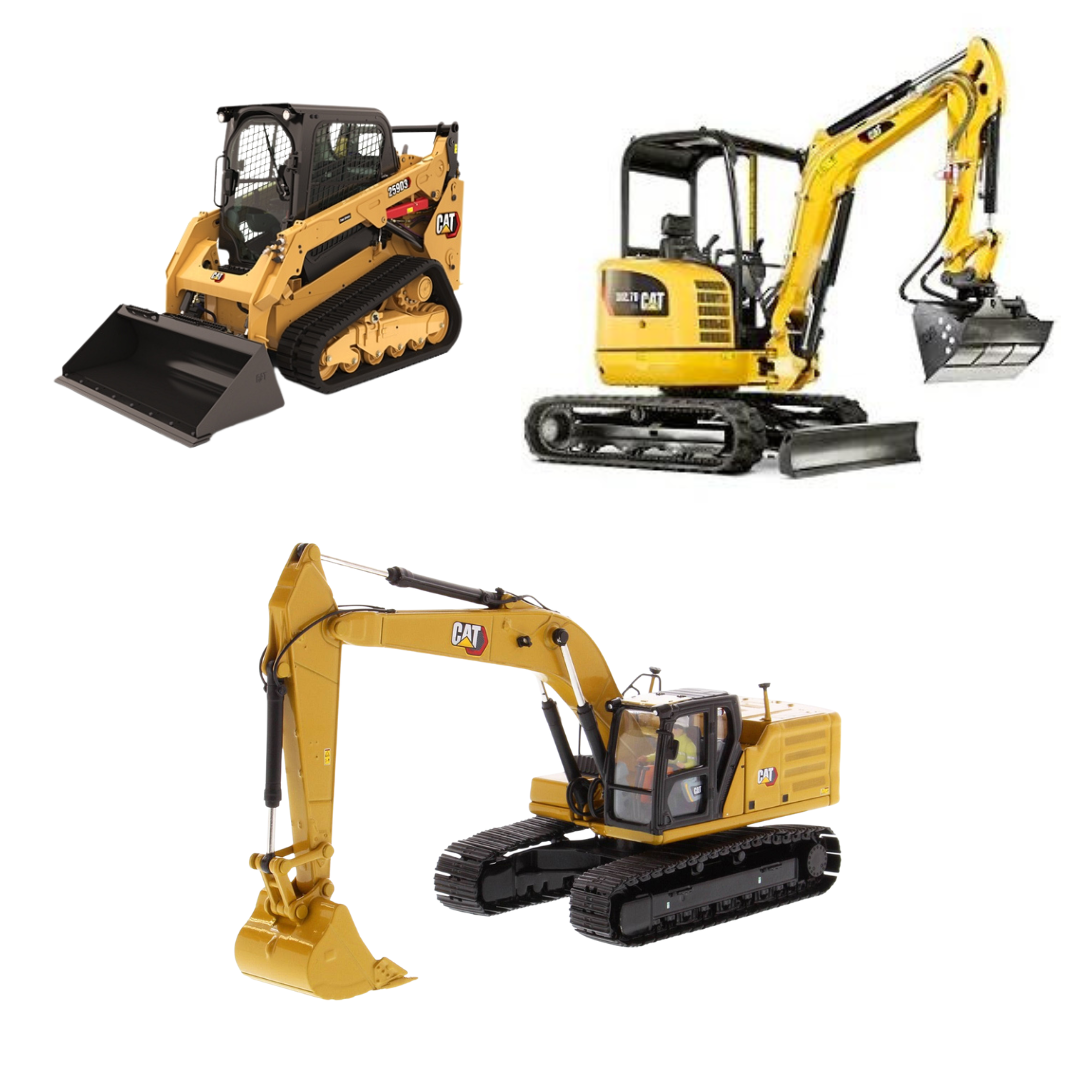Construction Equipment Rentals: Heavy Duty Machinery for Your Projects
Construction Equipment Rentals: Heavy Duty Machinery for Your Projects
Blog Article
Maximize Your Spending Plan by Understanding the Costs Connected With Building And Construction Equipment Leasings
Understanding the full range of costs linked with construction equipment leasings is critical for optimizing your budget. What methods can be utilized to properly handle these expenses and make sure a much more effective rental experience?
Introduction of Rental Costs
When considering building and construction equipment rentals, understanding the linked prices is vital for reliable budgeting and project planning. Rental expenses can vary significantly based on several aspects, including tools type, duration of leasing, and area. The initial rental charge often shows the devices's market demand and its associated operational abilities, affecting the overall cost.
Along with the base rental price, supplementary prices may occur, such as transport charges, fuel additional charges, and maintenance fees. It is important to account for these additional expenditures to properly evaluate the complete cost of renting equipment. The rental duration can impact prices; longer services may certify for discounted rates, while temporary leasings might sustain greater day-to-day charges.

Malfunction of Rental Rates
A detailed understanding of rental rates is essential for contractors and job managers aiming to optimize their budget plans. Rental prices for building tools normally contain several parts, including base rates, time-based costs, and use charges.
Base prices are the core costs connected with the rental of the tools, commonly determined by the kind and size of the equipment. These rates can vary substantially, influenced by variables such as devices demand, availability, and regional market fads. Time-based fees, which might be daily, weekly, or monthly, offer to accommodate various job timelines and rental periods.
Additionally, rental prices may include use charges, which are suitable when tools is made use of beyond a defined limit, making sure that the rental business can represent damage. Seasonal need fluctuations can additionally affect rental prices, with peak building periods typically commanding greater prices.
Furthermore, understanding the rental business's plans relating to maintenance and insurance can supply additional understanding right into the general expense structure. By examining these parts, specialists can make enlightened decisions, making sure the selection of rental devices aligns with both project requirements and spending plan constraints.
Additional Charges to Consider
Recognizing the intricacies of added charges is important for contractors to handle their general rental expenditures properly. Past the standard rental prices, numerous supplemental charges can substantially affect the total price of tools leasing. These charges often consist of distribution and pickup fees, which can differ based upon range and logistics entailed in carrying the equipment to and from the job site.
In addition, some rental business may impose fuel surcharges if the devices is returned with less fuel than when leased. It is also vital to understand possible cleansing costs, specifically for customized equipment that requires detailed upkeep after use.

Thoroughly evaluating the rental arrangement and clearing up these extra charges ahead of time can assist specialists make certain and stay clear of unforeseen prices that budget plans continue to be intact throughout the project lifecycle.
Upkeep and Repair Expenses
Regular repair and maintenance expenses are typically forgotten elements that can considerably affect the total price of construction equipment services. When renting out equipment, it is essential to think about not just the rental costs however also the potential expenses connected with keeping the machinery in ideal operating problem.
Many rental companies consist of fundamental maintenance as part of the rental agreement; nevertheless, a lot more unanticipated malfunctions or extensive fixings can lead to extra expenses. It's important to review the rental contract very carefully to understand what upkeep services are covered and what obligations fall on the renter.
Moreover, equipment that is not properly maintained can lead to ineffectiveness on the job website, possibly boosting and causing hold-ups project costs. To reduce these threats, it is a good idea to conduct regular examinations and maintain open communication with the rental copyright pertaining to any kind of problems that arise during usage.
Insurance Policy and Obligation Expenses
Insurance and liability costs are essential elements that can substantially affect the total expenditure of construction equipment rentals (forklift rental). These prices make certain that both the rental firm and the client are shielded from possible economic losses occurring from crashes, damages, or theft during the rental period

Additionally, clients must be aware of any deductibles or exclusions in the insurance coverage, as these can impact possible out-of-pocket expenditures. Understanding the these details conditions of any kind of insurance policy protection is important to avoid unanticipated prices. Inevitably, budgeting for insurance coverage and liability expenditures can aid ensure a smoother rental experience and secure against financial dangers related to construction tasks.
Final Thought
In verdict, a detailed understanding of the expenses associated with construction devices services is necessary for reliable spending plan monitoring. Ultimately, informed decision-making concerning equipment rentals adds to the total success of building and construction ventures.
Rental prices can differ considerably based on a number of elements, including tools type, period of service, and place (heavy equipment rental). The rental period can influence pricing; longer leasings might qualify for affordable prices, while temporary services could sustain greater day-to-day costs
By conducting thorough research and engaging with trustworthy rental companies, specialists can effectively browse the complexities of rental pricing, inevitably maximizing their economic resources.
Beyond the typical rental rates, different supplementary fees can dramatically influence the complete price of devices leasing. Rental business frequently offer liability insurance that covers injuries to 3rd parties or damage to property, while devices damages insurance coverage can cover the cost of repairs or substitute if the leased equipment is damaged.
Report this page